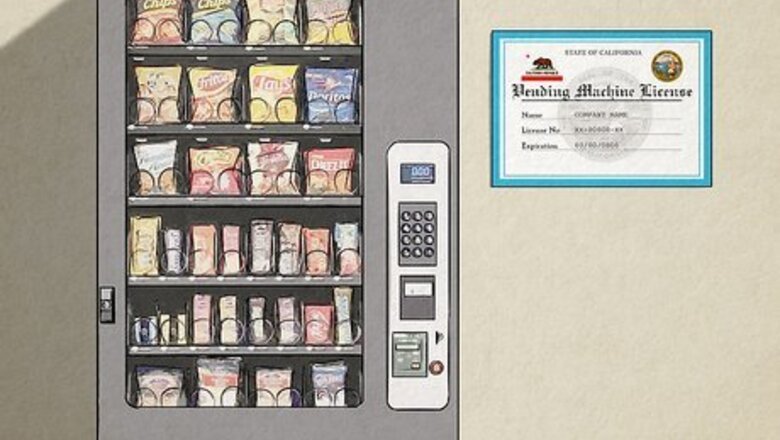
views
- Register for an Employer Identification Number (EIN) with the IRS so you can set up an LLC for your vending machine.
- Follow federal business regulations, but file for a license through your state government.[1]
- Ensure that your vending machines meet label laws and are ADA compliant.
Do I have to have a license to operate a vending machine?
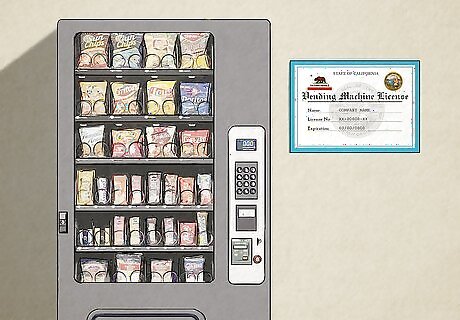
You must get a license from your state to buy a machine and file taxes. Even if you're just installing 1 machine, you will eventually have to file state and federal taxes on the money you make, so you need a business license. Depending on your state laws, you might need additional permits like a beverage license.
Do I need to get a contract to place a vending machine?
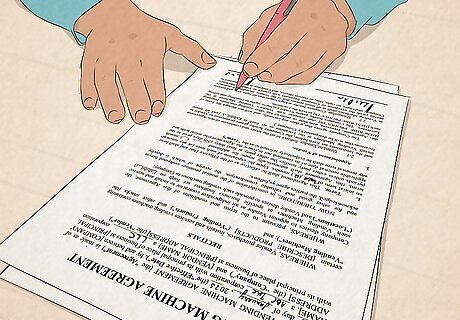
You don't have to, but it can provide some reassurance. Most vending machine operators draw up a contract with a business that spells out how long they will operate the vending machine there. The contract might say the business owner can't allow competing vendors to place machines in the same location. On the other hand, some businesses will hesitate to sign a contract if you don't have vending experience or they'd rather see how your vending machine does in the space.
How do I meet the federal requirements for a license?
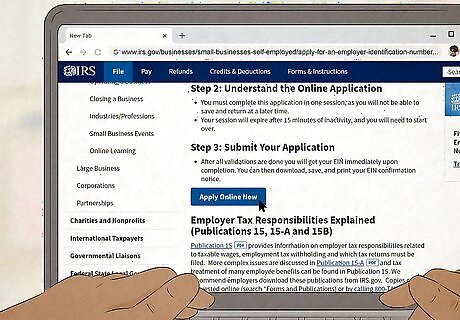
Register for an Employer Identification Number (EIN). In order to register your vending machine business and get a state or local vending machine license, you must get an EIN. This way, you can pay taxes to the federal government and your state, if required. It's free to get your EIN from the IRS, so don't trust businesses that charge you for the service of registering for an EIN.

Set up a limited liability company (LLC). The LLC is essentially the legal entity for the vending machines you operate. Since it's limited liability, it means you're personally protected from debts or liabilities if someone is harmed by your vending machines. To set up an LLC, choose a business name, fill out an "Articles of Organization" form, file it with your secretary of state, and pay the required fee. At this point, you can open a bank account to conduct all your financial transactions related to vending. The cost to set up an LLC varies by state, but it ranges from $45 to $300.
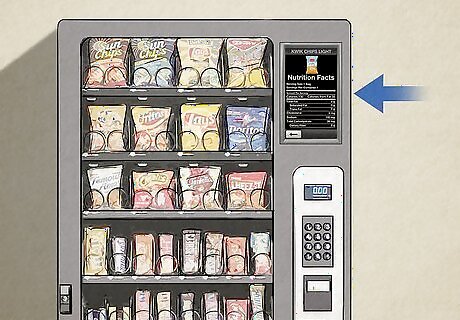
Follow federal label laws if you operate more than 20 vending machines. The Food and Drug Administration (FDA) requires vendors to give the calorie information for food sold from vending machines. This might mean that you carry products with the calorie information on the front of the packages, or you display the calorie information on a sign near the vending machines. If you don't follow federal label laws, the FDA can contact you to discuss enforcement. If you're selling tobacco products, you're legally required to place the vending machines in adult-only businesses.
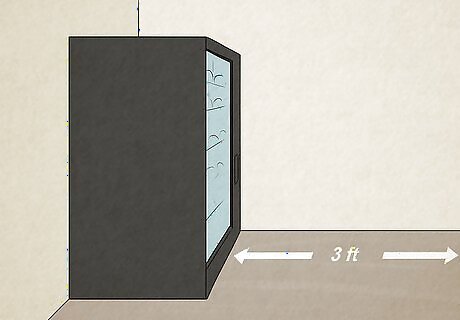
Meet the Americans with Disabilities Act (ADA) guidelines. In order to keep your federal vending machine license, you have to make it easy for everyone to get to your machines. Remove barriers and provide an accessible route for people with disabilities. For instance, if you place your vending machine in a shop or community center, the path to get to the machine must be at least 3 ft (0.91 m) wide. Depending on where you're putting your machines, you might have to talk with the business owner and ask them to move shelves, endcaps, or products so your vending machine is ADA compliant.
How do I fulfill the state requirements?
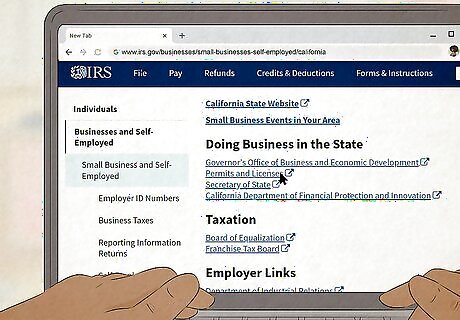
Visit the IRS's website to access your state's business directory. The IRS lists each state and provides a direct link to the state's IRS page. Select your state and look for the heading "Doing Business in the State." Click on the option that mentions a business license. For instance, if you're in Colorado, you'd click the "Department of Regulatory Agencies - Business License" link. If you're in Texas, click the "Department of Licensing and Regulation" link. You can also do a web search for "vending machine license requirements (state)."

Fill out your state's application and submit any applicable fees. Most states allow you to create an account so you can file the application online. If you prefer, print off a paper application or go to your local city hall to request one. Then, fill it out completely before you submit it. Your state might require you to submit an application to the Environmental Health Services Department or a similar health and safety department. Your application usually must include your contact information, a complete list of what you're selling in the vending machine, and technical information about the actual vending machine.
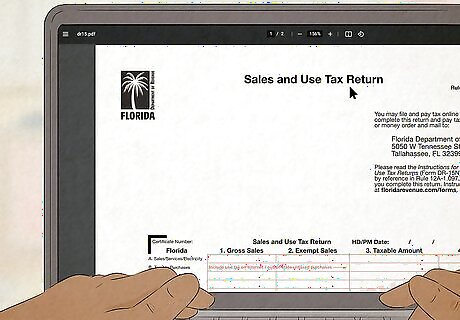
Register as a sales and tax dealer if your state taxes vending machines. If your state application says you're required to register for collecting taxes, fill out a separate application for your county. You can do this on your state's online revenue website. Provide your information, including the EIN you set up, along with the locations of your vending machines. Once your application is processed, the state will issue you a certificate of registration.
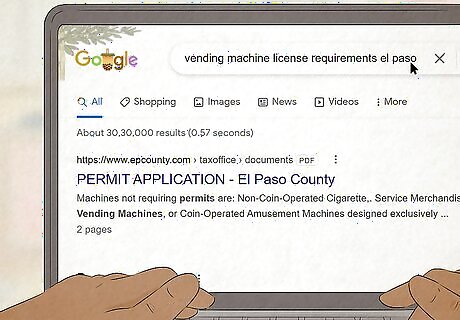
Determine if your city requires a vending machine license. Some municipalities only require a state license, like one from the state's health department. However, some cities regulate vending machine companies, so do a web search for "vending machine license requirements (your city)." For instance, your city might have strict rules about what foods you can sell in a vending machine that you've placed in a school. The city might also specify that you have to have a trash receptacle close to the vending machine.
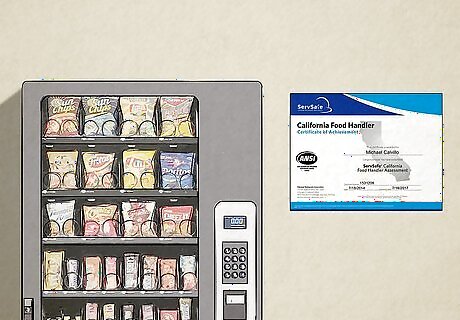
Get a food handler's card if your local government requires it. It might feel like you've done a lot of paperwork, but don't forget to check with your local government since some cities have additional requirements. Specifically, the local health department might require you to get a food handler's permit. To get a food handler's card, you typically have to take food-safety classes, take a test, and pay a small fee. The fee varies by state but usually costs around $10.
How much does it cost to get a license?
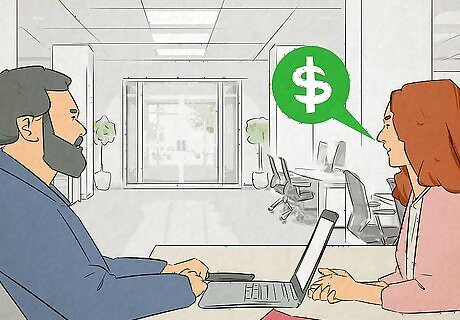
The price of a business license varies from state to state. Plus, each city has its own filing fees. These can range from $15 to hundreds of dollars, so check with your state when you pick up your application to get a business license.
Basic Responsibilities of a Vending Machine Owner
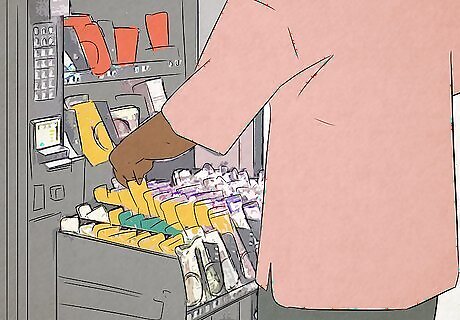
Keep your vending machine stocked with unexpired food. Visit your vending machine regularly, possibly every few days if it gets a lot of use, and replenish items. If you've got a machine in an area that doesn't get a lot of use, it's really important to check that the food items haven't expired.
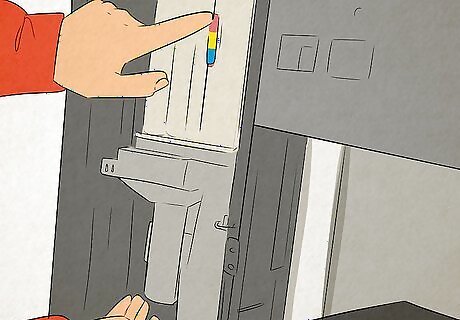
Remove the money and file taxes. You'll also have to top up the machine with coins so it can give the correct change to customers. After you remove the money, you can use it to replenish your stock or deposit it in a bank account designated for your vending machine. Don't forget to pay taxes on the money you earn!
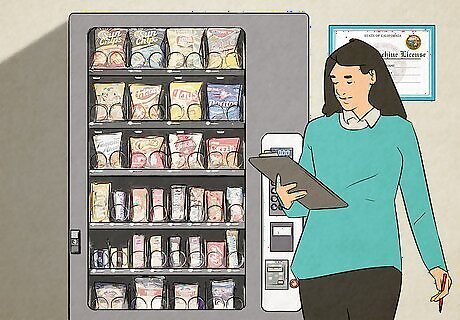
Follow your agreement and maintain the vending machine. Refer back to the contract you made with the business where you placed your machine. If you agreed to give them a percentage of all sales, pay them however often you specified. If problems come up with the machine—it's not chilling drinks for instance—call in a repair worker so the machine is operating at its best. Depending on your agreement with the business where you've placed the machine, you might stipulate that they're responsible for maintenance issues. For instance, if there's an electrical problem, they'll have to call an electrician.




















Comments
0 comment